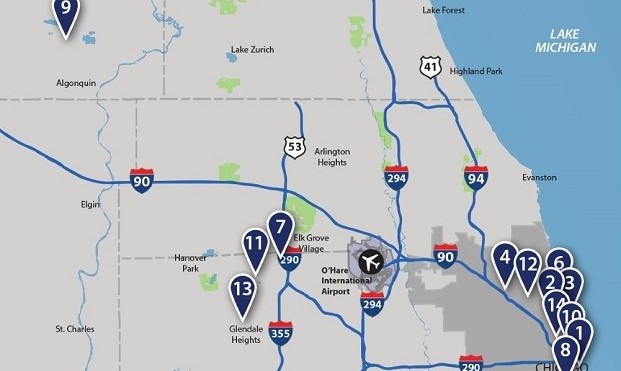 “Many homeowners' associations are realizing that a significant value premium can be achieved through a deconversion sale,” says James Hanson, an Avison Young principal in the firm's Chicago office.
“Many homeowners' associations are realizing that a significant value premium can be achieved through a deconversion sale,” says James Hanson, an Avison Young principal in the firm's Chicago office.
CHICAGO—The tremendous demand for rental units in many Chicago neighborhoods has led an increasing number of condominium owners to sell their buildings to apartment developers. Over the past 24 months, ending July 15, there have been more than 20 so-called “deconversions” announced in Chicago, according to a new report from Avison Young's Chicago office. These include buildings ranging from fewer than 10 units to over 300 units, mostly in hot rental markets such as Old Town, Lincoln Park, and the Gold Coast. These properties are generally older buildings constructed from the 1960s through the 1980s.
“There is considerable demand for rental housing in Chicago and across the country,” says James Hanson, an Avison Young principal in the firm's Chicago office. “Many homeowners' associations are realizing that a significant value premium can be achieved through a deconversion sale versus the sale of an individual unit as a condominium. The whole is worth much more than the sum of its parts.”
The fall in home ownership rates since the Great Recession, along with the desire among most Millennials to rent units within the urban core, led developers to add approximately 72,000 apartment units to the Chicago area since 2006.
But that has not been enough to completely satisfy demand. Higher development costs, a limited availability of land, and other factors have limited the supply of new multifamily units in key Chicago neighborhoods, making it very likely the condo deconversion trend will continue.
The economics that make the deconversion attractive to investors also make the transaction attractive to condominium unit owners, as they typically receive a 25 to 40% premium in per unit pricing, according to Avison Young. And, as many of these older buildings face significant capital investments for repairs and upgrades, the condo owners also may avoid the financial burden of a special assessment.
 According to CoStar and Avison Young, the most recent condo deconversions have occurred in the region's hot rental markets.
According to CoStar and Avison Young, the most recent condo deconversions have occurred in the region's hot rental markets.In the near future, the Avison Young team expects deconversion activity to proceed at a steady pace as new investors enter the market and drive favorable transaction pricing. These moves should also expand the stock of class B apartment units available in Chicago, add significant rental units in desirable submarkets where new development is not feasible, and eventually lead to the sale of the original deconversions as core multi-family assets.
James Hanson, along with Richard Hanson, principal, and Paul Cohen, senior vice president, were recently awarded the exclusive sale assignment for a 196-unit condominium deconversion at Gallery 1250, at 1250 N. La Salle St. in Chicago. The team represents the Gallery 1250 Condominium Association in its efforts to market the building for sale to an investor.
Gallery 1250 was built in 1987 as a rental property and converted to condos in 2003. The amenities include a 24-hour doorman, on-site property management, a fitness center, a bicycle room, storage rooms and a rooftop sundeck. The property is located in Old Town, close to North Ave. Beach, the Chicago History Museum, and many dining and entertainment options.
© 2025 ALM Global, LLC, All Rights Reserved. Request academic re-use from www.copyright.com. All other uses, submit a request to [email protected]. For more information visit Asset & Logo Licensing.





